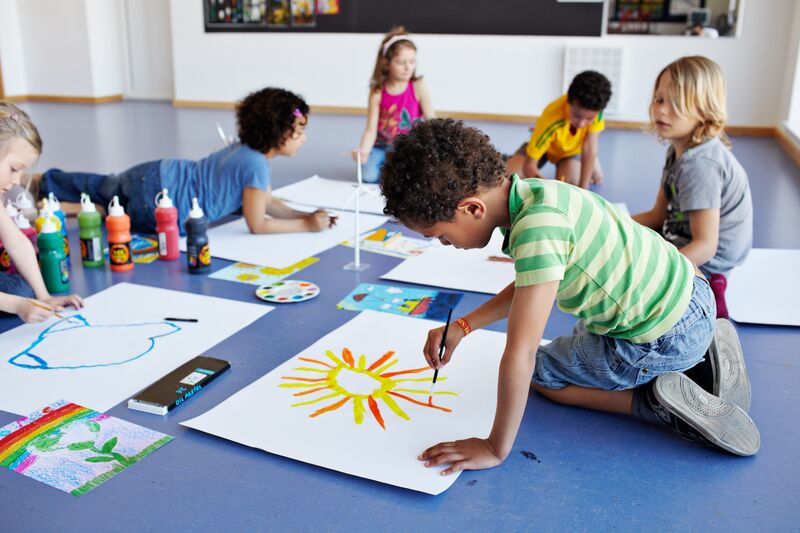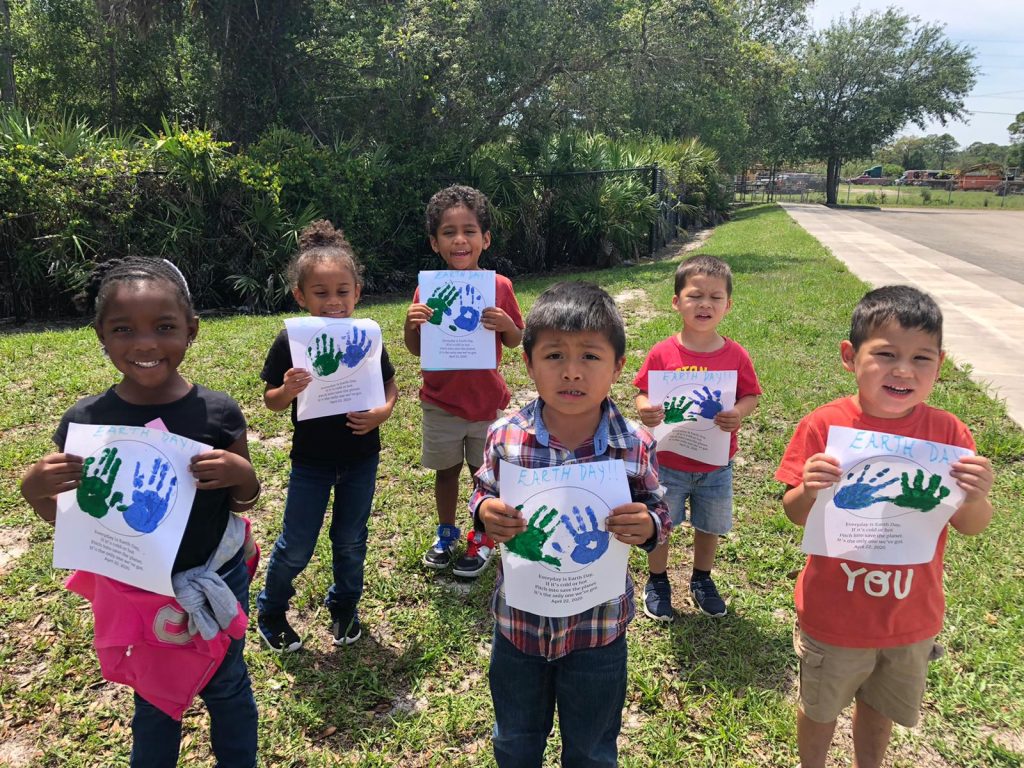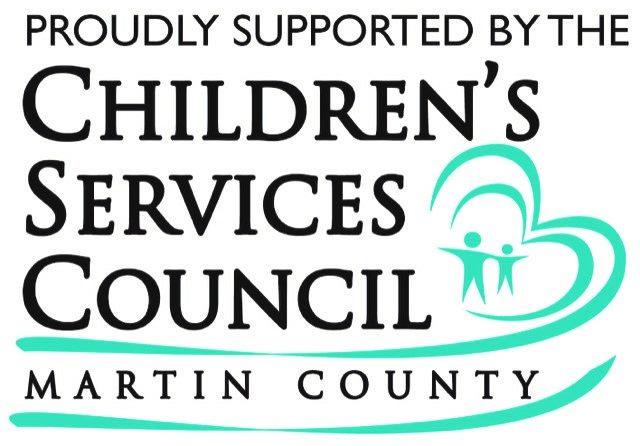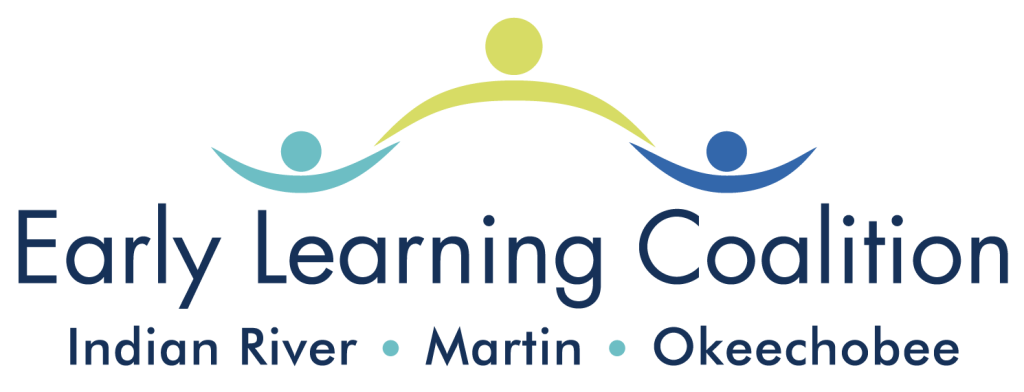Richard C. Geisinger Branch - Stuart
For the times you can’t be there yourself, the YMCA supports your efforts to nurture your child’s healthy development. Well-trained staff provide safe, affordable, high-quality care so you can have peace of mind. Our early childhood education programs (ECE) enroll children from six weeks of age up to five years old, regardless of race, ethnicity, national origin, language status, disability status, family make-up, sexual orientation, gender identity and socioeconomic status.
The YMCA uses guidelines of the National Association for the Education of Young Children, the nation’s largest professional organization of early childhood educators.
YMCA ECE programs give your child the consistent, positive attention he or she needs. Aware of the developmental stages that go along with these early years, Y staff guide children’s growth. Positive relationships with these care givers help children learn to trust others and themselves.
YMCA ECE care builds on children’s natural desire to learn new things and become more self-reliant. Getting along with other children, sharing, taking turns and working in a group are a natural part of playing games or learning a new craft. The Y is an exciting and challenging place, helping preschoolers stretch their skills in mind and body. It is also a safe, comfortable place where children build positive relationships with caring adults.

Hours of Operation: Monday – Friday
Preschool: 6:30 A.M. – 6:00 P.M.
VPK: 9:00 A.M. – 12:00 P.M.
Phone: 772-286-4444, ext. 231
Classes
The following information is for reference only. Just as each child is unique, so too is each classroom. Room change decisions are based age, developmental factors and several other factors.
Infants and toddlers experience the environment through their senses, by physically moving around, and through social interaction. A cozy environment in which caregivers set the stage for living, learning and playing is especially important for these young children. Infants are exposed to language and early literacy skills, and these skills are cultivated as your child moves through the program. Our teachers work with each child at his/her individual level of development to provide activities that promote small and large muscle development, language development, and sensory development. Our infant interaction includes lots of eye-level experiences, including floor play time as teachers read, build with blocks, and supervise daily tummy time. Infants are always held for bottle feeding. We encourage and support breastfeeding for infants. Storage is available for frozen and thawed breast milk for a week at a time (please label with child’s name and date pumped/thawed). In addition, mothers are encouraged to breastfeed on site whenever possible; a comfortable and semi-private nursing space will be provided.
In our toddler rooms, we learn through play! We offer a well-balanced schedule of activities focusing on gross motor skills (using the whole body to master coordination and muscle control), fine motor skills (eye-hand coordination, for example using a pincer grasp to pick up small objects, puzzles, gluing, finger painting), and sensory skills (texture, water and sand play). Students develop language skills through stories, naming objects and engaging in conversation. Social skills, such as sharing, manners, playing with others are introduced and encouraged daily. We sing and teach many songs and finger plays with the use of shakers, scarves and musical instruments. Toddlers are also learning self-help skills including feeding themselves, putting their toys away, and recognizing their cubbies and personal items such as coats, blankets, etc. Normal, but sometimes upsetting, behaviors can include difficulty saying good-bye, biting, tantrums and unwillingness to share. We help the child and parents work through these actions and emotions. Children are learning self-help skills including putting their toys away and recognizing their cubbies and personal items such as coats, blankets, etc. Their individual personalities are developing. Each child is special and unique. When the child is ready, we also work with the parents on toilet training. This is done on an individual basis according to the specific needs of each child. We do not allow bottles or baby food and discourage the use of pacifiers after 12 months of age. We do not allow pacifiers and discourage the use of sippy-type cups after 18 months of age.
In this lively classroom, teachers provide a stimulating environment of play and exploration, and nurture self-help skills; potty-training is a major focus. We expand on developments made in the toddler rooms and prepare our children for the future! Students continue to develop language skills through stories, naming objects and engaging in conversation. Social skills such as sharing, manners, and playing with others are continued and encouraged to expand through the year. Music is incorporated daily and we sing and teach many songs and finger plays with the use of shakers, scarves and musical instruments. Children continue to develop stronger self-help skills including feeding themselves, putting their toys away and recognizing their cubbies and personal items. We do not allow sippy-type cups after 24 months of age. Toilet Training requires strong communication and consistency between school and home; toilet training must be complete before moving out of a Twos class.
Your young preschooler will become independent in managing snacks and lunch as well as drinking from a cup. There is a daily focus on one aspect of our ongoing curriculum, which includes: Science (experiments, observations, art, weather), Physical Education (inside and outside games, exercises), Reading Readiness (learning to “read” from left to right, letter recognition, lists, calendar), Stories and Puppets (using imaginations while listening to someone tell a story, having “plays”, writing our own stories) and Math Readiness (number recognition, sorting, counting games and songs, “what’s missing?” exercises, measuring). Music is an integral part of the daily routine. We sing classic favorites as well as theme and seasonal oriented songs and finger plays. The children also have an opportunity to use rhythm sticks, dance and march during music. The children in these classrooms enjoy themselves as their world expands and opens around them. There is a lot of growing up going on as these children become more self-sufficient and confident. No diapering facilities are available in the Threes; all students must be potty trained.
In this classroom, your child will be involved in a well-balanced, creative curriculum coinciding with weekly themes, ensuring they are ready for Kindergarten the following year! Through creative play, outdoor play, art projects and circle time, children begin mastering fine and gross motor skills, social-emotional skills, self-care skills and problem-solving techniques. Circle time includes a calendar routine, weather chart, songs, finger plays and stories. Children also have an opportunity to be included on the Helping Hands chart, filling the roles of leader and table helpers. Classrooms are divided into four specific areas concentrating on different needs of preschoolers: language, math, science and discovery. Each day includes center time and individual/small group instruction. Children participate in nature walks, science projects, and a variety of educational games. During this time many developmental milestones are reached, and the skills learned will prepare the child for a smoother transition from preschool to kindergarten.
One-time registration fee: $60 due upon enrollment
Annual supply fee: $30 due each August
Ask about our Sibling Discounts!
Tuition is due on the Wednesday before the week of care. Accounts more than two weeks past due are considered delinquent and your child may be subject to disenrollment. If you are having difficulty paying tuition, assistance may be available through our Community Scholarship Fund.
YMCA accepts ELC SR certificates. Parents are responsible for the difference between tuition and the amount of the subsidy. ELC subsidies require adherence to specific additional policies.
Contact Preschool Age Childcare Director
Louis Dreyfus Citrus Branch – Indiantown
Our Y Indiantown preschool provides a safe, nurturing environment that is stimulating and challenging. Our teachers are caring, imaginative, and well-trained. YMCA educational programs develop individual potential, build self-esteem, and encourage healthy behavior, respect diversity, and positive values.
Hours of Operation: Monday – Friday
Preschool: 7:15 A.M. – 5:30 P.M.
Head Start: 9:30 A.M. – 12:30 P.M.
Phone: 772-597-3700 ext. 261
- Infants: $240 /week
- 1-year-olds: $200/ week
- 2-year-olds: $185/ week
- 3-year-olds: $165/ week
- 4 to 5-year-olds: $165/ week
- VPK: FREE! (8:00-11:30am), Wrap-Around afternoon care – $125

- A clean and bright facility for safe exploration and learning
- Loving and caring teachers for encouragement and support
- Age appropriate activities and equipment for child development


